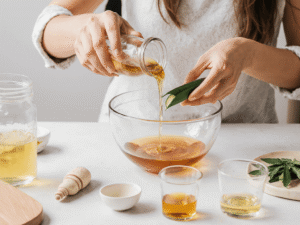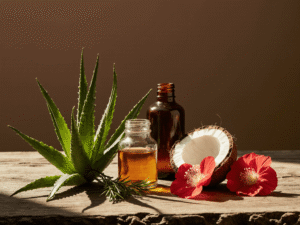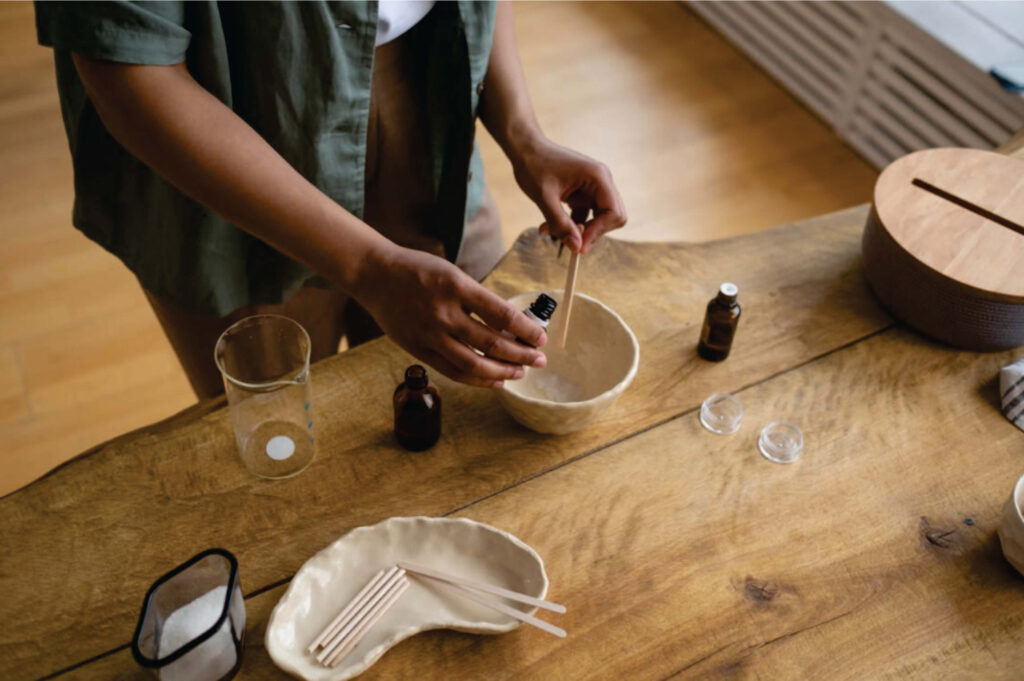In today’s fast-paced world filled with commercial products, creating your own haircare solutions offers a refreshing and personalized alternative. But what makes this approach so appealing? Let’s delve into the unique benefits of DIY haircare and how it can transform your routine.

Take Control of Your Hair’s Health
One of the biggest advantages of DIY haircare is knowing exactly what goes into your products. Many store-bought items contain synthetic additives that may not suit everyone. By crafting your own, you can avoid these unwanted ingredients and create products that reflect your values.
DIY also allows you to tailor products to your specific hair type. Whether you’re dealing with dryness, frizz, or excess oil, you can experiment with natural ingredients to find what works best. The result? Products designed exclusively for your hair’s needs.
Additionally, DIY haircare helps you avoid allergens. Many people experience irritation from sulfates or silicones in commercial shampoos. Homemade alternatives offer gentle, nourishing solutions without unwanted side effects.
On a natural beauty forum, one user shared how switching to a homemade aloe vera and castile soap shampoo finally calmed years of scalp irritation. She described the relief as “life-changing,” noting she could wash her hair without constant itching for the first time in a decade. Still, castile soap has a higher pH and may feel drying for some users, so balancing it with a mild acidic rinse can help.

Cost-Effective Quality
Contrary to popular belief, making your own haircare products can be budget-friendly. High-end brands often have high prices due to marketing and packaging costs. DIY allows you to create luxurious, effective products without overspending.
Affordable staples like aloe vera, coconut oil, and flaxseed are nourishing and versatile. They can be used in multiple ways, saving money and eliminating the need for multiple products.
DIY also reduces how often you need to buy new products. Many homemade treatments, such as deep conditioning masks, last a long time. This ensures you always have high-quality haircare at home while reducing unnecessary purchases.
I once made a simple flaxseed hair gel after reading about it in a natural haircare group. The recipe cost less than two dollars to prepare. Yet it worked better than the $20 styling cream I had been using for years. That experience showed me the financial and practical power of DIY.
Eco-Friendly Choices
Switching to DIY haircare benefits both you and the environment. Most commercial products come in plastic packaging, adding to global waste. Using reusable glass jars or sustainable packaging reduces waste and supports eco-friendly practices.
Many DIY recipes also use biodegradable, sustainably sourced ingredients. This supports a healthier planet while benefiting your hair. Kitchen staples like apple cider vinegar or herbal infusions can be repurposed into hair treatments, minimizing waste.
Plant-based ingredients further reduce the demand for chemically manufactured products. Conscious beauty choices protect ecosystems and reduce pollution, making DIY haircare a step toward sustainability.
Avoid Harmful Chemicals
A key benefit of DIY haircare is eliminating harsh chemicals found in many commercial products. Parabens, sulfates, and artificial fragrances can weaken hair over time. By choosing natural ingredients, you nourish your hair without harmful effects.
For example, rosemary oil has been shown to stimulate hair growth. A study published in Skinmed found that rosemary oil was as effective as 2% minoxidil, a common hair regrowth treatment, with fewer side effects (Skinmed study).
Other popular natural ingredients include castor oil. Many people use it hoping for thicker-looking hair. Scientific research is limited, but many users share positive results. Hibiscus extract is another traditional choice. It is valued in herbal practices for shine and strength. Modern studies remain scarce. Research does confirm that coconut oil penetrates the hair shaft. It reduces protein loss better than most oils (Journal of Cosmetic Science).
Many people online confirm these benefits from personal experience. One Reddit user explained that consistent use of castor oil helped her hairline recover after postpartum shedding. Her story is anecdotal but has inspired many others to try the same approach.

A Personal Touch
Creating haircare products is more than practical—it’s a creative and enjoyable experience. Mixing ingredients, testing combinations, and perfecting recipes allow you to customize your routine while achieving great results.
I first tried a simple hair mask using honey and egg yolk. The results were amazing—my hair felt softer and shinier. This success encouraged me to experiment with other natural treatments. Over time, I developed a set of DIY recipes suited to my hair’s needs.
DIY also lets you personalize scents and textures. Essential oils like lavender or peppermint enhance both the effectiveness and the experience of homemade haircare. Each treatment feels like a spa ritual tailored just for you.
Aromatherapy in haircare is also supported by research. A 2015 review in Evidence-Based Complementary and Alternative Medicine showed that certain essential oils not only add fragrance but also reduce stress. This calming effect may improve overall well-being (ECAM review).
Long-Term Hair Health
DIY haircare offers benefits beyond short-term fixes. Consistently using nutrient-rich ingredients strengthens and improves hair over time. For example, adding rosemary oil to your routine enhances scalp circulation, promoting growth.
Additionally, adapting your recipes to seasonal changes can help your hair stay balanced. Many people find heavier oils like shea butter more useful in winter when dryness is common. Lighter options such as aloe vera and chamomile may feel more comfortable in summer. While not strongly researched, this approach is a practical way to adjust your care to different conditions.
One long-time forum user shared how keeping a “hair diary” transformed her results. She recorded how her hair responded to each oil and mask. After six months, she found her perfect routine: weekly coconut oil masks, monthly protein treatments, and daily aloe spritzes. Her hair, once brittle and dull, became strong and shiny.

Embark on Your DIY Journey
Starting DIY haircare is easier than it seems. Begin with simple recipes, such as a hydrating shampoo made from castile soap and aloe vera. As you gain confidence, explore more advanced creations like leave-in conditioners or protein treatments.
Investing in basic tools like pH strips and sterilized containers ensures safety and effectiveness. Keeping a hair journal also helps track which ingredients work best for your hair, refining your formulas over time.
Why DIY Haircare Is Worth It
Making your own haircare products comes with many benefits, from cost savings to healthier hair. By removing harmful additives, supporting sustainability, and enjoying the creative process, DIY haircare empowers you to take control of your beauty routine.
It is also a way to connect with yourself through mindful rituals. Each recipe becomes a form of self-care that strengthens both hair and confidence. DIY choices also give a sense of independence from marketing-driven products.
Ultimately, it is more than just hair—it is about well-being and conscious living. By embracing DIY haircare, you choose health, creativity, and respect for the planet. These DIY haircare benefits go beyond beauty and support a more mindful lifestyle. So why wait? Start today and discover how small steps create lasting transformations. Your hair and the environment will both be grateful.
How to Wash Your Hair Without Plastic? Alternatives to Liquid Shampoos
How Stress Affects Hair and Ways to Prevent Hair Thinning

I’m Victoria, the creator behind Eva My Balance. Passionate about beauty, wellness, sustainable living, and mindful self-care. My mission is to inspire you to live consciously and beautifully—inside and out.


